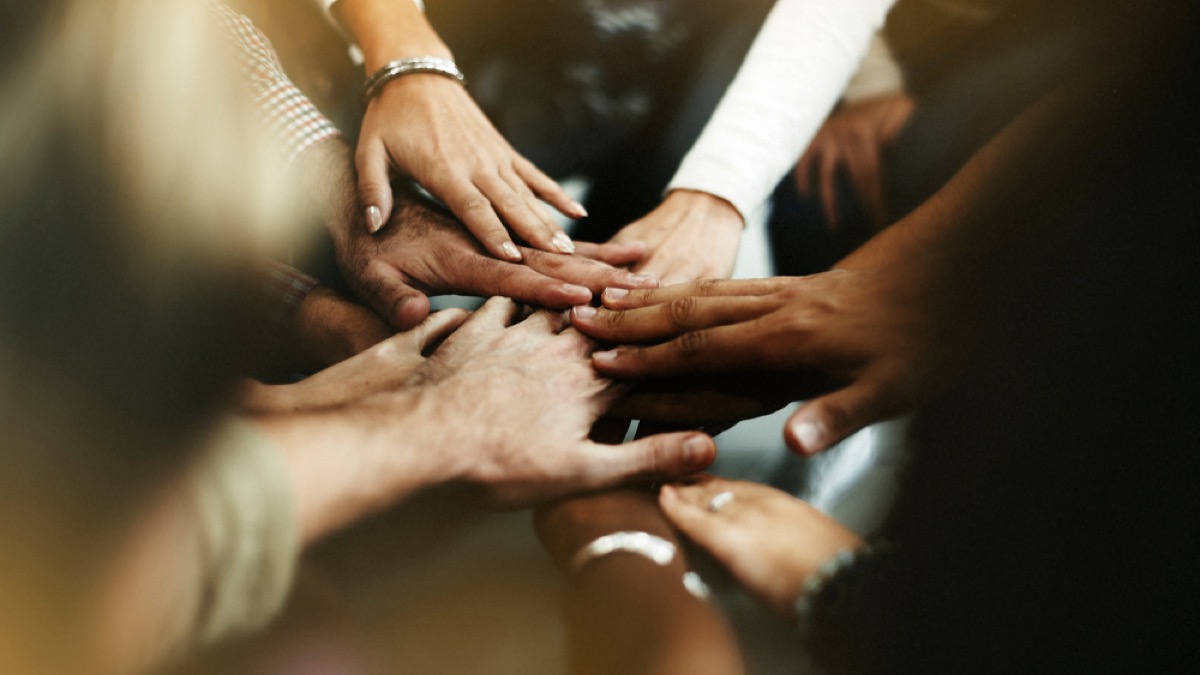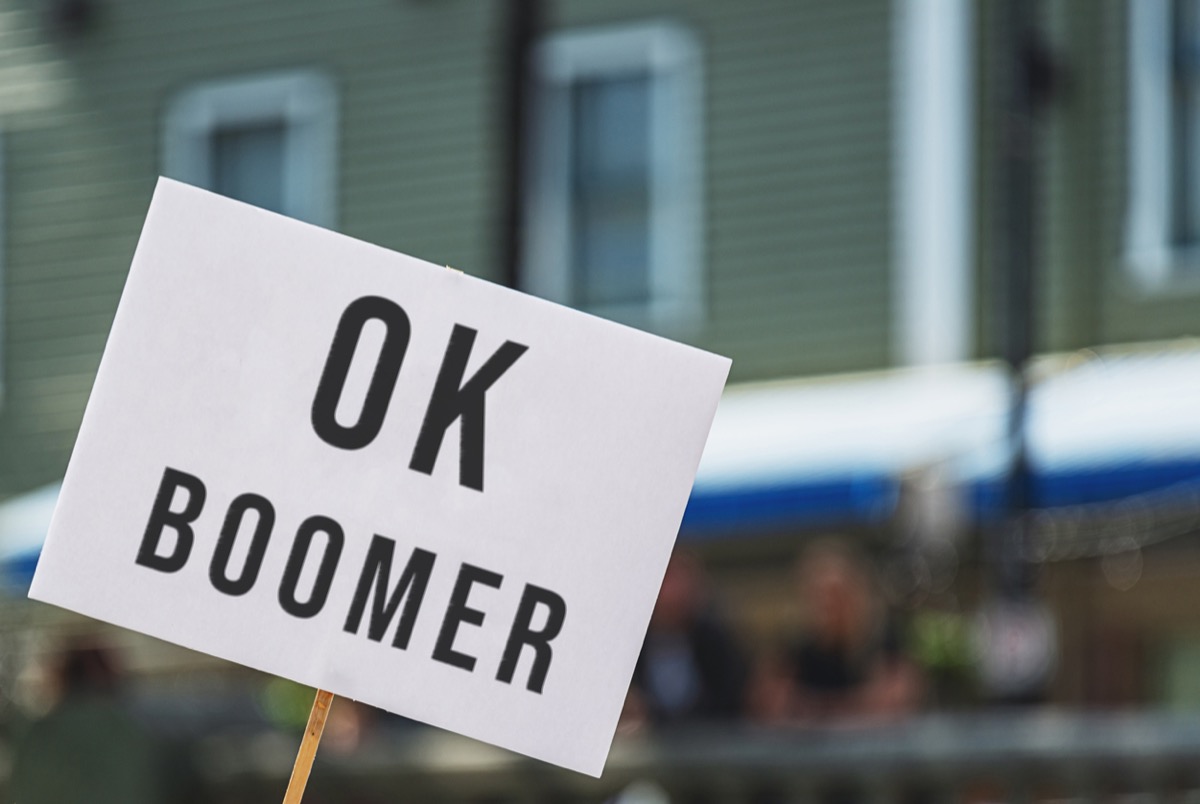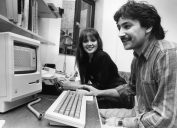These Are the Baby Boomer Stereotypes People Get Wrong
We're not the selfish "me" generation we're made out to be. Here's what people get wrong about baby boomers.

I was born on Oct. 13, 1958 in Philadelphia, Pennsylvania. Dwight D. Eisenhower was president of the United States and the country had recently launched the Explorer 1 satellite, extending our reach into outer space. The average cost of a new home was $12,750, which was what my parents paid for our three-bedroom, two-bath house in one of the original Levitt communities called Willingboro, New Jersey. Six decades later, that amount of money could instead buy a modest used car.
And speaking of a gallon of gas? It was only a quarter. In my neck of the woods in 2020, it averages $2.50 a gallon. I remember my parents talking about their own childhood, when a loaf of bread was five cents and penny candy really did only cost a penny. I would roll my eyes at their glorifying the "good old days." Now, my 32-year-old son considers me ancient and the time in which I grew up too simplistic—and inexpensive—to be believed.
I am squarely a member of the baby boomer generation, which includes people born between 1944 and 1964, named because of an upswing in births following World War II. As I write this, there are 73 million of us in the United States.
And with that many of us, we are hardly a homogenous cohort. Among those who entered the world in those two decades are high earning CEOs, low wage blue collar workers, single parents struggling to raise their children and grandchildren, farmers, teachers, those who are conservative, progressive, and moderate politically.
Whenever the term "baby boomer" is mentioned, it seems to be attached to the notion that we are the selfish "me" generation, that we're technologically challenged and social media inept, and that we're not accessible to online marketers.
But I, for one, proudly defy that image. My son says I am a "Facebook addict" who lives on the computer (though I have admittedly turned to him and some of his friends to assist me in wading through complicated apps). I'd also like to think of myself as someone who is always looking beyond "me." I'm a boomer who cares about peace and social justice, as are many of my peers. (But, of course, not all.)
Some boomers relate to being part of the "Woodstock generation," who let our "freak flags fly," who protested the Vietnam War, and who stood up for civil rights. South Pacific was a popular musical the year I was born. My mother and I would listen to the 33 RPM album so many times, it's a wonder we didn't wear it out. We sang along to the music that, although I didn't realize it at the time, was about racism—with the song, "You've Got to Be Carefully Taught" a poignant reminder that love can truly overcome hatred when we see ourselves as more alike than different.
Having been born at the tail end of the 1950s, I was six years old when John F. Kennedy was assassinated, and I watched the news about the war with confusion, hearing about the ways people of color were treated in this country and inherently knowing that it was unjust but not having the words to express it.
I was 11 when 400,000 hippies hit the muddy fields on that legendary farm in Woodstock, New York. Now, in my 60s, I still stand for what they stood for and immerse myself in the music of those who performed at the festival. In my suburban Philadelphia community, I am part of several multi-generational groups that also stand for those same ideals. We organize and attend vigils, rallies, and marches; we sign petitions; we register voters; and we educate about the need for peace and social justice orientation. Sometimes the boomers are in leadership roles, sometimes younger folks set the tone. But there seems to be more cooperation than competition.

I am also a therapist, a journalist, a minister, a speaker, a mom and a grand mom with a solid work ethic that was instilled in me by my "greatest generation" parents, who were born in 1924. According to a recent article on the website Management Is a Journey, "The core values of baby boomers include optimism, team orientation, personal gratification, health and wellness, personal growth, youthfulness, work, and involvement. When a workplace environment supports their values, baby boomers are more satisfied with their jobs. When these and other values important to them are missing, baby boomers are less engaged."
Unfortunately, in the workplace, boomers are viewed as less valuable as we age. It's assumed that we can't keep up with the changing times, that we are not as creative on the job as younger people, and that we are less teachable. But the facts bely those beliefs. Our life experiences as boomers make us more valuable; our work ethic has us maintaining commitment to our employers; we are determined to maintain our value, even taking continuing education classes to stay current.
Our parents' generation often held down one job for their entire careers, while those in the latter part of the boomer generation have multiple streams of income, in part because of those aforementioned core values and in part because we want to maintain financial stability since job security no longer exists. Entrepreneurship is a positive outcome of that inclination.
We are also working past the standard retirement age of 65 for various reasons, including financial need, social interaction, and a sense of purpose. That notion of having ongoing value assists in longevity. By continuing to make a meaningful contribution in the workplace, we are also adding to the growth of the economy.
Home ownership, saving for the future, and investing funds for retirement have long been boomer values that many of us have endeavored to pass on to our children.
Enter "OK Boomer."
In Oct. 2019, a viral Tik Tok video brought the phrase into the mainstream and then, it got even more attention in November, when Chlöe Swarbrick, a 25-year-old New Zealand lawmaker, was dissed by an older member of Parliament as she was giving a speech about a climate crisis bill. She responded with a cast-off "OK Boomer" from the podium that further pushed the saying into the modern lexicon.
It set off a meme storm that led to even greater discord between the generations. Some young people tend to think that boomers aren't even tech savvy enough to see the "OK Boomer" memes, but we grew up with evolving technology and we use it daily for the social media aspect (to maintain contact with distant friends and family), for shopping online, for doing research, and for learning via videos, as a 2017 article in Forbes points out.
I hadn't used a computer until I was in grad school and now I am electronically fluent, carrying my laptop in my backpack as a near constant companion. There were no cell phones when we boomers were growing up, but we would be just as lost without them as millennials and Gen-Xers.
Although the "OK Boomer" comment is seen as a humorous pushback, it is one more way that our culture sets up division between us. It's as if once we reach a certain age, we are compartmentalized and of decreasing worth, our values antiquated. There are boomers who attempt to maintain or reclaim their youth and there are those who accept the turning of the calendar pages, knowing that the end of their life journey is closer than the beginning.

And while there are certainly dismissive boomers, whose attitudes toward those who came after us are, "You're a kid. What do you know?"—there are many of us who admire what millennials and the generations that follow are doing.
When we consider those taking a stand for sustaining life on the planet, 17-year-old Greta Thunberg lands center stage. And Emma González and her Stoneman Douglas High School peers are the loudest voices speaking out about gun control. Gratefully, many in my generation are listening and standing shoulder to shoulder with them.
We are realizing that the choices we have made impact their lives. They are taking the future into their hands. It is up to us to join hands with them to do the heavy lifting. And I'd like to believe many of us boomers are doing just that.





















